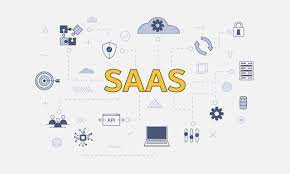
In the competitive landscape of Software as a Service (SaaS), customer support has evolved from a mere afterthought to a critical component of success. It’s the lifeline that connects the user to the service, ensuring that every interaction adds value and builds trust.
In this industry, the swift resolution of issues and effective communication can significantly enhance customer retention and satisfaction. A strong support backbone is not just about addressing problems; it’s about creating an ongoing dialogue that fosters loyalty and engagement.
The necessity for robust customer support is underscored by the very nature of SaaS offerings – continuous and evolving. Customers expect real-time solutions and support that understands the nuances of their business. The ability to provide this level of service requires a deep integration of knowledge, technology, and customer empathy.
This integration not only helps in solving immediate problems but also anticipates future needs, thereby positioning the company as a trusted advisor rather than just a service provider.
Moreover, the ripple effect of positive customer support experiences extends far beyond the individual. In the age of social media and online reviews, a single positive support experience can enhance the company’s reputation, while a negative experience can significantly damage it. The emphasis on quality customer support is thus an investment in the company’s brand and future – a critical aspect that every SaaS company must embrace to thrive.
Understanding Customer Needs and Expectations
Understanding customer needs and expectations is paramount in creating a support system that not only resolves issues but also delights the customer. Each customer interaction provides a wealth of information that, when properly analyzed and utilized, can drive improvements in service and product offerings. Effective support teams are those that listen to the customer’s voice, understand their pain points, and adapt their approach accordingly.
It’s about creating a culture of continuous feedback, where support interactions are seen as opportunities to learn and grow. By systematically collecting and analyzing feedback, SaaS companies can make informed decisions that align with customer expectations. This proactive approach not only enhances the support experience but also informs product development, ensuring that the service evolves in a direction that adds value to the user.
Personalization is another critical aspect of understanding and meeting customer expectations. In a market saturated with generic solutions, personalized support can be a significant differentiator. By treating each customer as unique and tailoring support to their specific needs, companies can create memorable experiences that build loyalty and advocacy.
The Technology Behind Effective Support
The role of technology in enabling effective customer support cannot be overstated. From AI-powered chatbots that provide instant responses to sophisticated ticketing systems that track and manage customer queries, technology is the backbone of modern customer support. It allows for scalability, consistency, and efficiency, ensuring that customers receive the help they need when they need it.
However, the adoption of technology in support systems must be thoughtful and strategic. It’s not just about having the latest tools but about integrating them in a way that enhances the customer experience. This means choosing solutions that are flexible, scalable, and easy to use for both customers and support staff. It also means continuously updating and training the team on these technologies to ensure they are leveraged to their full potential.
Moreover, technology should be seen as an enabler rather than a replacement for human interaction. The best support systems are those that combine the efficiency of technology with the empathy and understanding of human support. This hybrid approach ensures that while routine queries can be handled quickly and efficiently, more complex issues are addressed with the care and depth they require.
The Role of Third-Party Support Services
As SaaS companies expand, the intricacies of scaling customer support can become increasingly challenging. This is where third-party support services become invaluable. These specialized providers offer scalable, expert support solutions that can adapt to the growing needs of a business. They bring efficiency, advanced technology, and a breadth of experience that can be seamlessly integrated into the existing support structure of a SaaS company.
Among these third-party providers, SupportZebra stands out with its comprehensive approach to customer support. Founded in 2010 and boasting a global workforce, SupportZebra specializes in delivering extensive customer support solutions. They leverage AI technology to boost efficiency and automation, offering a level of service that’s both sophisticated and adaptable. Catering to sectors such as eCommerce and SaaS, as well as Fintech, Healthcare, Retail, and Technology, their services are versatile and comprehensive. They’re not just about handling customer queries; they’re about enhancing the customer experience through innovative solutions and strategic support.
The value of partnering with a dedicated third-party support provider lies in their commitment to continuous improvement and customer satisfaction. For SaaS companies, this means having access to a team that’s always on the cutting edge of support technology and practices, ready to adapt and evolve as the business grows. Their approach is to work alongside companies as an extension of their own team, providing the expertise and resources needed to deliver exceptional customer support.
In integrating third-party services, it’s crucial for SaaS companies to maintain a seamless experience for customers. This means ensuring that the third-party support aligns with the company’s values, culture, and quality standards. When done right, the collaboration can elevate the level of support provided, making it a strategic advantage in a competitive market. The proven track record of successful third-party support teams with various esteemed clients illustrates their ability to meet and exceed expectations, making them a compelling choice for SaaS businesses looking to enhance their customer support capabilities.
Building a Scalable Support Team
As a SaaS company grows, so does the need for a support team that can scale with it. This involves not only expanding the team size but also maintaining the quality and responsiveness that customers expect. It’s a delicate balance that requires strategic planning and execution.
Recruiting the right people is the first step in building a scalable support team. This means looking beyond technical skills to attributes like empathy, problem-solving, and a genuine desire to help. Once the team is in place, continuous training and development are crucial. The support team must be kept up-to-date with the latest product updates, support technologies, and customer service best practices.
The structure of the support team is also important. As the team grows, it should be organized in a way that allows for specialization while maintaining overall cohesiveness. This might involve creating dedicated teams for different product lines or customer segments or establishing tiers of support to ensure that queries are handled efficiently and effectively.
Additionally, outsourcing certain specialized functions can further improve this efficiency. For example, integrating SaaS accounting services can simplify financial operations, allowing your support team to focus more on customer interactions. Similarly, outsourcing IT support can also ensure that technical issues are resolved promptly, freeing up your in-house team to handle more complex customer inquiries.
Integrating Support Throughout the Customer Journey
Integrating support throughout the customer journey is about more than just providing help when things go wrong. It’s about engaging with the customer at every stage, from onboarding to renewal. By doing so, support becomes a proactive force that enhances the overall customer experience and drives business growth.
Onboarding is a critical stage where support can make a significant impact. A smooth and supportive onboarding process can set the tone for the entire customer relationship, reducing friction and building confidence. Similarly, during the usage phase, proactive support can help customers get the most out of the product, reducing frustration and churn.
The support team should also be involved in the renewal process, using their insights into customer needs and experiences to inform renewal strategies. By understanding the reasons behind churn, the support team can provide valuable feedback that helps prevent future losses.
Case Studies: Support as a Strategic Asset
Case studies of SaaS companies that have successfully leveraged support as a strategic asset provide valuable lessons for others in the industry. These stories illustrate the transformative power of effective customer support, showing how it can drive customer satisfaction, retention, and business growth.
One such example might be a company that overhauled its support system, resulting in a dramatic reduction in response times and a significant increase in customer satisfaction. Another might be a company that used customer feedback to drive product improvements, leading to increased sales and market share.
These case studies provide not just inspiration but also practical insights that can be applied by other SaaS companies. They show that with the right approach, support can be much more than a cost center – it can be a powerful driver of business success.
Write and Win: Participate in Creative writing Contest & International Essay Contest and win fabulous prizes.


